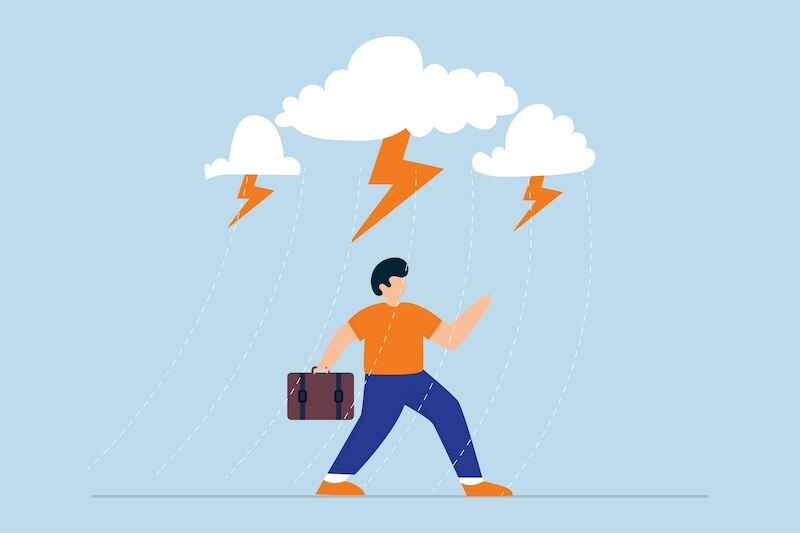I often write about thinking biases that can affect our decision making.
Today I want to talk about a way of thinking that can undermine our resilience during hardship, as well as our ability to flourish and succeed.
It’s no secret that catastrophes happen in life. Natural disasters, tragic accidents, terrible illnesses, heart-rending betrayals, economic calamities, war, famine…
Human history has been riddled with these, and most of us have been touched by something catastrophic in one way or another.
But it’s important to remember that a catastrophe is not the most likely scenario. If they were common, we wouldn’t think of them as catastrophes, just the normal troubles we expect in life. Sure, there can be disappointments, hardships, struggles, and losses that require us to step up to challenges we would rather not have to face. These are not uncommon.
But a true catastrophe is highly unlikely.
They Want Our Nervous System in Overdrive
When we expect catastrophe as a likely scenario, the expectation creates its own troubles that can run deep.
Yet our current media and political culture thrives on creating and maintaining an atmosphere of impending catastrophe.
This is true across the political spectrum and throughout much of the common space we share through internet, TV, movies, and print media, to name a few… The conversation that is mediated by every kind of media is filled with visions of catastrophe.
The very way that these threats are framed don’t encourage us to think clearly, investigate deeply, or encourage us to search for practical solutions.
It leaves us terrified, enraged, and helpless. And this can undermine our capacity for success, happiness, and wellbeing across every aspect of our lives.
This orientation is guaranteed to activate our primitive reactions of fight, flight, and freeze – reactions that are designed to give us a last-ditch possibility of surviving the mortal attack of a predator.
While these parts of our nervous system serve an essential survival function when needed, they are very rarely actually needed. They also undermine our desire and ability to seek understanding, empathy, and compassion for others, and interfere with our internal sense of wellbeing and basic trust. We’re not able to think clearly.
Catastrophic thinking can undermine resilience and increase our risk for anxiety, depression, and PTSD. It can also undermine our capacity for success – i.e. those who tend to not engage in catastrophic thinking also tend to be the ones who excel.
Consider Martin Seligman’s descriptions in the book Flourish:
- “When bad things happen to me, I expect more bad things to happen.”
- “I have no control over the things that happen to me.”
- “I respond to stress by making things worse than they are.”
Can you relate to any of these? If so, your beliefs about hardships, challenges, and potential threats are likely to be harming you.
Not the hardships, challenges, and potential threats themselves, but your beliefs about them.
If this is the case for you and you’re faced with what feels like a catastrophic situation, let me offer something that could potentially lead you to a path out of this:
- Define the worst-case scenario in personal terms. How can the scenario affect you personally? Think of one action you could take that would make that scenario a little bit less likely.
- Define the best-case scenario. Is there one action you could take that would make that scenario a little bit more likely?
- Define the most likely scenario. How about an action that would allow you to cope more effectively with that scenario?
Doing this can help you to frame your situation in a way that gives you access to your strength and resources – and to problem-solve more effectively.
But how can we deal with potential catastrophes that could affect the whole world?
I’ll cover that in my next column…
